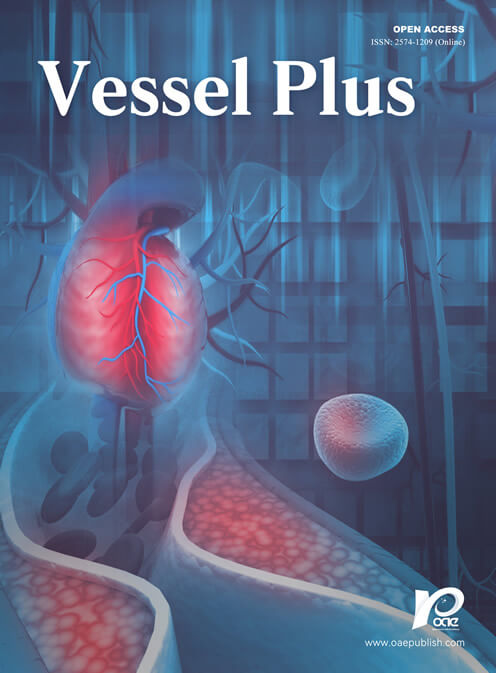REFERENCES
1. Rosenson RS, Hegele RA, Fazio S, Cannon CP. The evolving future of PCSK9 Inhibitors. J Am Coll Cardiol 2018;72:314-29.
2. Ference BA, Ginsberg HN, Graham I, et al. Low-density lipoproteins cause atherosclerotic cardiovascular disease. 1. Evidence from genetic, epidemiologic, and clinical studies. A consensus statement from the european atherosclerosis society consensus panel. Eur Heart J 2017;38:2459-72.
3. Efficacy and safety of cholesterol-lowering treatment: prospective meta-analysis of data from 90056 participants in 14 randomised trials of statins. Lancet 2005;366:1267-78.
4. Grundy SM, Stone NJ, Bailey AL, et al. 2018 AHA/ACC/AACVPR/AAPA/ABC/ACPM/ADA/AGS/APhA/ASPC/NLA/PCNA guideline on the management of blood cholesterol: a report of the american college of cardiology/American heart association task force on clinical practice guidelines. J Am Coll Cardiol 2019;73:e285-350.
5. Authors/Task Force Members, ESC committee for practice guidelines (CPG), ESC national cardiac societies. 2019 ESC/EAS guidelines for the management of dyslipidaemias: lipid modification to reduce cardiovascular risk. Atherosclerosis 2019;290:140-205.
6. Roth EM, Davidson MH. PCSK9 Inhibitors: mechanism of action, efficacy, and safety. Rev Cardiovasc Med 2018;19:S31-46.
8. Ding Z, Wang X, Liu S, et al. PCSK9 expression in the ischaemic heart and its relationship to infarct size, cardiac function, and development of autophagy. Cardiovasc Res 2018;114:1738-51.
9. Ding Z, Pothineni NVK, Goel A, Lüscher TF, Mehta JL. PCSK9 and inflammation: role of shear stress, pro-inflammatory cytokines, and LOX-1. Cardiovasc Res 2020;116:908-15.
10. Ding Z, Liu S, Wang X, et al. Cross-Talk Between PCSK9 and Damaged mtDNA in Vascular Smooth Muscle Cells: Role in Apoptosis. Antioxid Redox Signal 2016;25:997-1008.
11. Ding Z, Liu S, Wang X, et al. Cross-talk between LOX-1 and PCSK9 in vascular tissues. Cardiovasc Res 2015;107:556-67.
12. Ding Z, Liu S, Wang X, et al. Hemodynamic shear stress via ROS modulates PCSK9 expression in human vascular endothelial and smooth muscle cells and along the mouse aorta. Antioxid Redox Signal 2015;22:760-71.
13. Ding Z, Liu S, Wang X, et al. PCSK9 regulates expression of scavenger receptors and ox-LDL uptake in macrophages. Cardiovasc Res 2018;114:1145-53.
14. Cadenas S. ROS and redox signaling in myocardial ischemia-reperfusion injury and cardioprotection. Free Radic Biol Med 2018;117:76-89.
15. von Harsdorf R, Li PF, Dietz R. Signaling pathways in reactive oxygen species-induced cardiomyocyte apoptosis. Circulation 1999;99:2934-41.
16. Zhao ZQ, Velez DA, Wang NP, et al. Progressively developed myocardial apoptotic cell death during late phase of reperfusion. Apoptosis 2001;6:279-90.
17. Palee S, McSweeney CM, Maneechote C, et al. PCSK9 inhibitor improves cardiac function and reduces infarct size in rats with ischaemia/reperfusion injury: Benefits beyond lipid-lowering effects. J Cell Mol Med 2019;23:7310-9.
18. Sabatine MS, Giugliano RP, Wiviott SD, et al; Open-label study of long-term evaluation against LDL cholesterol (OSLER) investigators. Efficacy and safety of evolocumab in reducing lipids and cardiovascular events. N Engl J Med 2015;372:1500-9.
19. Schwartz GG, Steg PG, Szarek M, et al; ODYSSEY OUTCOMES committees and investigators. Alirocumab and cardiovascular outcomes after acute coronary syndrome. N Engl J Med 2018;379:2097-107.
20. Murphy SA, Pedersen TR, Gaciong ZA, et al. Effect of the PCSK9 inhibitor evolocumab on total cardiovascular events in patients with cardiovascular disease: a prespecified analysis from the FOURIER trial. JAMA Cardiol 2019;4:613-9.
21. Giugliano RP, Pedersen TR, Park J, et al. Clinical efficacy and safety of achieving very low LDL-cholesterol concentrations with the PCSK9 inhibitor evolocumab: a prespecified secondary analysis of the FOURIER trial. Lancet 2017;390:1962-71.
22. Gürgöze MT, Muller-Hansma AHG, Schreuder MM, Galema-Boers AMH, Boersma E, Roeters van Lennep JE. Adverse events associated with PCSK9 inhibitors: a real-world experience. Clin Pharmacol Ther 2019;105:496-504.
23. Kosmas CE, Muñoz Estrella A, Sourlas A, et al. Inclisiran: a new promising agent in the management of hypercholesterolemia. Diseases 2018;6:63.
24. Momtazi-Borojeni AA, Jaafari MR, Badiee A, Banach M, Sahebkar A. Therapeutic effect of nanoliposomal PCSK9 vaccine in a mouse model of atherosclerosis. BMC Med 2019;17:223.
25. Wu D, Zhou Y, Pan Y, et al. Vaccine against PCSK9 improved renal fibrosis by regulating fatty acid β-Oxidation. J Am Heart Assoc 2020;9:e014358.
26. Cholesterol treatment trialists’ (CTT) collaboration. Efficacy and safety of more intensive lowering of LDL cholesterol: a meta-analysis of data from 170000 participants in 26 randomised trials. Lancet 2010;376:1670-81.
27. Boekholdt SM, Hovingh GK, Mora S, et al. Very low levels of atherogenic lipoproteins and the risk for cardiovascular events: a meta-analysis of statin trials. J Am Coll Cardiol 2014;64:485-94.
28. Yancy CW, Jessup M, Bozkurt B, et al. 2017 ACC/AHA/HFSA focused update of the 2013 ACCF/AHA guideline for the management of heart failure: a report of the american college of cardiology/American heart association task force on clinical practice guidelines and the heart failure society of America. J Am Coll Cardiol 2017;70:776-803.
29. Ponikowski P, Voors AA, Anker SD, et al; Authors/task force members, document reviewers. 2016 ESC guidelines for the diagnosis and treatment of acute and chronic heart failure: the task force for the diagnosis and treatment of acute and chronic heart failure of the european society of cardiology (ESC). Developed with the special contribution of the heart failure association (HFA) of the ESC. Eur J Heart Fail 2016;18:891-975.
30. Florkowski CM, Molyneux SL, George PM. Rosuvastatin in older patients with systolic heart failure. N Engl J Med 2008;358:1301.
31. Gissi-hf investigators. Effect of rosuvastatin in patients with chronic heart failure (the GISSI-HF trial): a randomised, double-blind, placebo-controlled trial. Lancet 2008;372:1231-9.
32. Bayes-Genis A, Núñez J, Zannad F, et al. The PCSK9-LDL receptor axis and outcomes in heart failure: BIOSTAT-CHF subanalysis. J Am Coll Cardiol 2017;70:2128-36.
33. Tang Z, Jiang L, Peng J, et al. PCSK9 siRNA suppresses the inflammatory response induced by oxLDL through inhibition of NF-κB activation in THP-1-derived macrophages. Int J Mol Med 2012;30:931-8.
34. Stulak JM, Davis ME, Haglund N, et al. Adverse events in contemporary continuous-flow left ventricular assist devices: A multi-institutional comparison shows significant differences. J Thorac Cardiovasc Surg 2016;151:177-89.
35. Goldstein DJ, Meyns B, Xie R, et al. Third annual report from the ISHLT mechanically assisted circulatory support registry: a comparison of centrifugal and axial continuous-flow left ventricular assist devices. J Heart Lung Transplant 2019;38:352-63.
36. Mehra MR, Uriel N, Naka Y, et al; MOMENTUM 3 Investigators. A fully magnetically levitated left ventricular assist device-final report. N Engl J Med 2019;380:1618-27.
37. Vieira JL, Pfeffer M, Claggett BL, et al. The impact of statin therapy on neurological events following left ventricular assist system implantation in advanced heart failure. J Heart Lung Transplant 2020;39:582-92.
38. Costanzo MR, Dipchand A, Starling R, et al; International society of heart and lung transplantation guidelines. The international society of heart and lung transplantation guidelines for the care of heart transplant recipients. J Heart Lung Transplant 2010;29:914-56.
39. Khush KK, Cherikh WS, Chambers DC, et al; International society for heart and lung transplantation. The international thoracic organ transplant registry of the international society for heart and lung transplantation: thirty-fifth adult heart transplantation report-2018; focus theme: multiorgan transplantation. J Heart Lung Transplant 2018;37:1155-68.
40. Lu WH, Palatnik K, Fishbein GA, et al. Diverse morphologic manifestations of cardiac allograft vasculopathy: a pathologic study of 64 allograft hearts. J Heart Lung Transplant 2011;30:1044-50.
41. Rahmani M, Cruz RP, Granville DJ, McManus BM. Allograft vasculopathy versus atherosclerosis. Circ Res 2006;99:801-15.
42. Lee F, Nair V, Chih S. Cardiac allograft vasculopathy: insights on pathogenesis and therapy. Clin Transplant 2020;34:e13794.
43. Lund LH, Edwards LB, Dipchand AI, et al; International society for heart and lung transplantation. The registry of the international society for heart and lung transplantation: thirty-third adult heart transplantation report-2016; focus theme: primary diagnostic indications for transplant. J Heart Lung Transplant 2016;35:1158-69.
44. Kühl M, Binner C, Jozwiak J, et al. Treatment of hypercholesterolaemia with PCSK9 inhibitors in patients after cardiac transplantation. PLoS One 2019;14:e0210373.
45. Moayedi Y, Kozuszko S, Knowles JW, et al. Safety and efficacy of PCSK9 inhibitors after heart transplantation. Can J Cardiol 2019;35:104.e1-3.
46. Toth PP, Descamps O, Genest J, et al; PROFICIO investigators. Pooled safety analysis of evolocumab in over 6000 patients from double-blind and open-label extension studies. Circulation 2017;135:1819-31.
47. Catapano AL, Papadopoulos N. The safety of therapeutic monoclonal antibodies: implications for cardiovascular disease and targeting the PCSK9 pathway. Atherosclerosis 2013;228:18-28.
48. Simha V, Qin S, Shah P, et al. Sirolimus therapy is associated with elevation in circulating PCSK9 levels in cardiac transplant patients. J Cardiovasc Transl Res 2017;10:9-15.
49. Warden BA, Kaufman T, Minnier J, Duell PB, Fazio S, Shapiro MD. Use of PCSK9 inhibitors in solid organ transplantation recipients. JACC: Case Reports 2020;2:396-9.
50. Sandesara PB, Dhindsa D, Hirsh B, Jokhadar M, Cole RT, Sperling LS. PCSK9 inhibition in patients with heart transplantation: a case series. J Clin Lipidol 2019;13:721-4.
51. Groba-Marco MDV, Del Castillo-García S, Barge-Caballero G, Barge-Caballero E, Couto-Mallón D, Crespo-Leiro MG. Treatment of Hypercholesterolemia With PCSK9 inhibitors in heart transplant recipients. First experience in spain. Rev Esp Cardiol (Engl Ed) 2019;72:1084-6.
52. Jennings DL, Jackson R, Farr M. PCSK9 inhibitor use in heart transplant recipients: a case series and review of the literature. Transplantation 2020;104:e38-9.
53. Walley KR, Thain KR, Russell JA, et al. PCSK9 is a critical regulator of the innate immune response and septic shock outcome. Sci Transl Med 2014;6:258ra143.
54. Bjerre KP, Clemmensen TS, Poulsen SH, et al. Micro- and macrovascular cardiac allograft vasculopathy in relation to 91 cardiovascular biomarkers in heart transplant recipients-An exploratory study. Clin Transplant 2020:e14133.
55. Broch K, Gude E, Karason K, et al. Cholesterol lowering with EVOLocumab to prevent cardiac allograft Vasculopathy in De-novo heart transplant recipients: design of the randomized controlled EVOLVD trial. Clin Transplant 2020;34:e13984.
56. Fearon W. National Institute of Health, US National Library of Medicine, clinicaltrials.gov. PCSK9 Inhibition After Heart Transplantation. Available from: https://clinicaltrials.gov/ct2/show/NCT03537742. [Last accessed on 9 Dec 2020].







